Barcelona has solidified itself as one of the most attractive cities globally, standing out not only for its quality of life but also for its ability to innovate and attract talent. Recognized as the 3rd best city in Europe and the 6th best in the world according to the “World’s Best Cities 2023” report by Resonance, Barcelona is not just a city featured in rankings but a strategic hub attracting multinational companies, startups, and professionals from around the world.
Catalonia has also been recognized as the best European region for the future, according to FDI Strategy 2023, reinforcing the idea that Barcelona is a key destination for foreign investment and the development of shared service centers. In this context, the city is not only a tourist destination but also an ideal place for students, international students, and professionals looking to settle down, grow professionally, and enjoy an excellent quality of life.
The Importance of Understanding the Job Market in Barcelona
If you’ve just arrived in Barcelona, you’re probably wondering what type of jobs or positions you can apply for. Considering certain key aspects will help you navigate the job market more confidently and increase your chances of success. Here are some tips to help you find work:
Language: One of the most important factors to consider is language. While English is often the working language in many international companies based in Barcelona, having a good command of Spanish is a valuable asset. It will not only expand the range of job opportunities available to you but will also help you integrate better with future colleagues and into the local society. Catalan, the co-official language of Catalonia, is commonly spoken but is usually not a strict requirement for finding work. However, speaking Catalan is appreciated, as it shows respect and integration into the local culture. Barcelona is a multicultural city where many languages coexist. If you speak multiple languages fluently, you will have more opportunities in companies with an international profile.
Internships or Graduate Programs: If you don’t have much experience in your field or are looking to change areas, internships or graduate programs are a great way to improve your resume. In Barcelona, many multinational companies like HP, Danone, Volkswagen, Nestlé, or Seat offer specific programs for young professionals. These programs not only allow you to gain experience, but there’s also the possibility of staying with the company and advancing your professional career.
Job Search Platforms: Portals like InfoJobs, LinkedIn, and local recruitment agencies like Babel Profiles, which specialize in international talent, are excellent options for international students seeking opportunities that match their skills. Be sure to customize your resume for each position you apply to. This means tailoring your information to align with what the companies are looking for and highlighting the most in-demand skills in each sector. This will help you stand out among other candidates and increase your chances of securing a job.
Types of Companies in Barcelona
– Spanish SMEs (Small and Medium Enterprises): SMEs are essential to Barcelona’s economy, representing about 70% of the city’s businesses. In general, business culture in SMEs tends to be more traditional, influenced by the local market. Language use varies, with both Catalan and Spanish spoken in most of these companies, reflecting the cultural diversity of Catalonia. Within this region, you can find small SMEs (fewer than 50 employees) and medium-sized SMEs (between 50 and 250 employees) with larger business volumes.
– Spanish International Companies: These are companies with a global presence but headquartered in Barcelona. Companies like Grifols, Puig, Isdin, Inditex Group (including brands like Zara), and Mango are leaders in their sectors and offer a business culture oriented toward internationalization. In these companies, Spanish is the primary language, but they also value international profiles that can contribute to their global expansion. English proficiency is highly valued and even mandatory for certain positions.
– Multinational Subsidiaries in Barcelona: Barcelona has become an important hub for the subsidiaries of large multinationals, managing their operations both nationally and regionally. Global companies like Amazon, Danone, Unilever, and Nestlé have key offices in the city, where they combine their international corporate practices with specific adaptations to the Spanish market. In these organizations, Spanish is the predominant working language, but English is highly valued, especially in roles that require frequent interaction with the company’s headquarters abroad.
– International Hubs: Barcelona is also home to hubs of large multinational companies such as SAP, Criteo, Salesforce, IBM, and Cisco. In these hubs, English is the main language, emphasizing their international nature. These hubs specialize in areas like sales, finance, accounting, digital marketing, and technology, developing innovative strategies and solutions for global clients. They provide excellent opportunities for professionals looking to advance their careers in a dynamic, digital-driven environment.
– Startups: Barcelona has emerged as the second-largest city in Europe for the creation of startups, making it a significant hub for innovation. Many small startups have grown rapidly in the city. Notable examples include Glovo (food delivery), Wallapop (second-hand sales), HolaLuz (renewable energy), and Typeform (online forms). English is the most commonly used language, although Spanish and Catalan are also spoken in the local market. The work culture in these companies is dynamic and youthful, with a flat structure that promotes open communication and collaboration.
– Remote Companies: Due to the high quality of life, Barcelona has become a magnet for many global companies that operate remotely. Many of these companies use English as their main language, facilitating collaboration between international teams and enriching the work environment. In Barcelona, many people also work for the American market, meaning they must adapt to the time difference. While salaries tend to be higher, remote work can sometimes mean limited face-to-face interaction with colleagues or a physical office space.
Key Sectors in Barcelona
– Consumer Goods: This sector includes a wide range of products, from food to fashion, with major brands operating both nationally and internationally. Companies like Procter & Gamble, Coca-Cola, L’Oréal, Danone, and Unilever not only generate thousands of jobs in the city but also play a crucial role in driving innovation and sustainability.
– Technology: Barcelona has become one of Europe’s leading tech hubs, with a dynamic and growing startup ecosystem. Many international and local tech companies have set up operations in the city. Areas like artificial intelligence, blockchain, gaming, big data, cybersecurity, and fintech are booming.
– Tourism & Hospitality: Tourism is a key pillar of Barcelona’s economy, attracting millions of visitors each year. The city is home to major hotel chains like Marriott, Hilton, and NH Hotels, along with restaurants, bars, and many other businesses offering a wide range of tourist services. The tourism and hospitality sectors are vital for the local economy and a major source of employment.
– Pharma & Life Sciences: Barcelona is a key hub in Europe for biomedical research, biotechnology, and pharmaceuticals. This sector includes biotechnology, medical technologies, and cosmetics. Companies like Grifols, Esteve, and Almirall are leaders in the pharmaceutical field, while institutions like Hospital Clínic, Barcelona Biomedical Research Park, and the Barcelona Science Park are crucial in driving innovation and development.
– Creative Industries: This sector covers fields such as design, fashion, and media and is experiencing significant growth. Barcelona, with its rich artistic and cultural heritage, attracts talent in areas like graphic design, content creation, and advertising.
Future Trends
The future of Barcelona’s job market looks promising but also presents challenges. The trend toward remote work is on the rise, and many companies are adopting hybrid models, making flexibility key to attracting and retaining workers. For students and international professionals, this represents a great opportunity to integrate into a labor market that values adaptability and allows combining studies with work experiences. Moreover, there’s an increasing focus on sustainability, opening new opportunities in sectors that emphasize responsible practices. As the world becomes more digital, learning and adapting new skills has become crucial. Ultimately, Barcelona is positioning itself as an important European hub for innovation, meaning companies have much to gain by joining this evolution.




